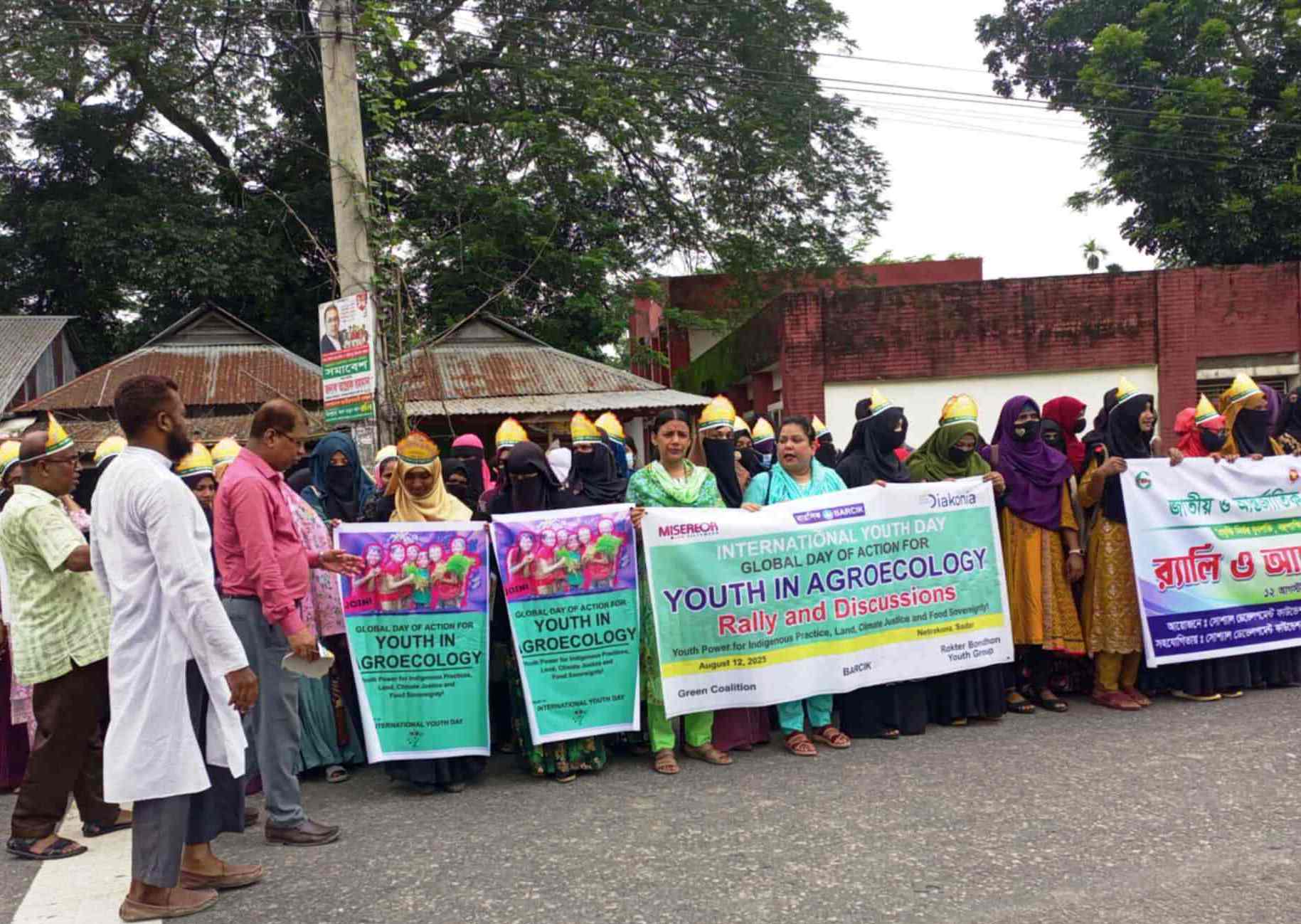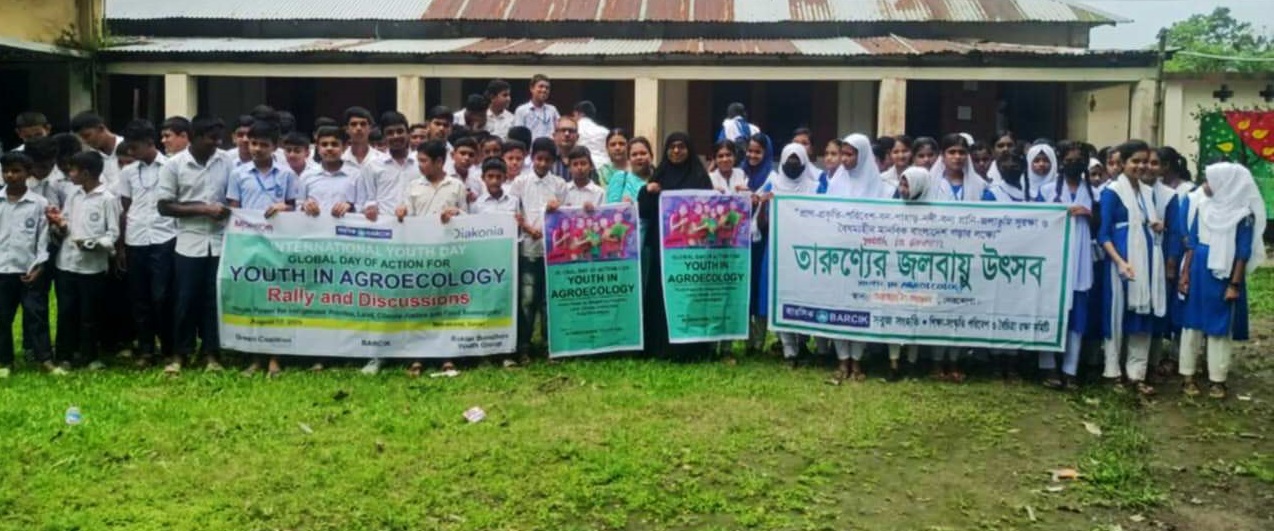By Khadija Akter and Ruksana Rumi from Netrakona
At a time when destruction, loss, and despair prevail, it is the youth who are rising to rebuild. They are keeping alive agriculture, the environment, families, communities, and the nation. Upholding humanity, diversity, civilization, and sustainability, the new generation is leading the way.
Through wall paintings, the youth have spread messages of awareness calling for a traffic-free Bangladesh, a society free of inequality, and adherence to social rules. “You created a Bangladesh of inequality by walking the wrong path. We have broken down that wall. Now, we dream of a sustainable, just, and humane Green Bangladesh,” they declared. This statement was recorded in an event held recently in Netrakona.

Marking International Youth Day on 12 August Green Coalition, the Committee for Education, Culture, Environment, and Diversity Protection, and Abbashia High School, with the support of BARCIK, organized a rally, discussion session, and quiz competition in Netrakona. The event was held under the slogan: “Food sovereignty and tomorrow’s Bangladesh will be built through youth power, local knowledge, and agroecological practices.”
The day began with a youth rally in Sakuya, organized by the Department of Youth Development and the District Administration. Netrakona’s Deputy Commissioner and District Magistrate Banani Biswas, Superintendent of Police Sayem Mahmud, Dr. Md. Golam Maula, Deputy Director of the Youth Development Department Farzana Parveen, along with government and non-government officials and journalists participated in the rally.
Later, at Abbashia High School in Kailati Union, students participated in a discussion and quiz competition on agroecology and climate justice. The discussion was attended by Head Teacher Abdur Rashid, journalist Mirza Hridoy Sagar, journalist and environmental activist Arfin Rasel, and veteran farmer Nasir Uddin.

Head Teacher Abdur Rashid emphasized, “We must promote family farming, protect local seed resources, avoid chemical inputs, expand crop diversity, and promote organic agriculture.” He further said, “Reducing groundwater use, harvesting rainwater, and protecting soil fertility are crucial. The future of sustainable agriculture and ecosystems lies in the hands of the youth.”
Farmer Nasir Uddin said, “Today’s youth will be tomorrow’s farmers. We grow safe food without chemicals in our homesteads, but we do not get fair prices. Selling brings low prices, while buying costs are high. This inequality must be addressed.”
The program concluded with prize distribution for the quiz competition on environment, climate, and agriculture, followed by a pledge of solidarity with nature.
